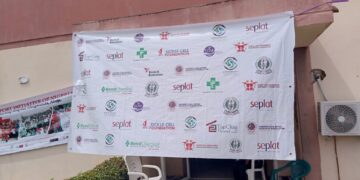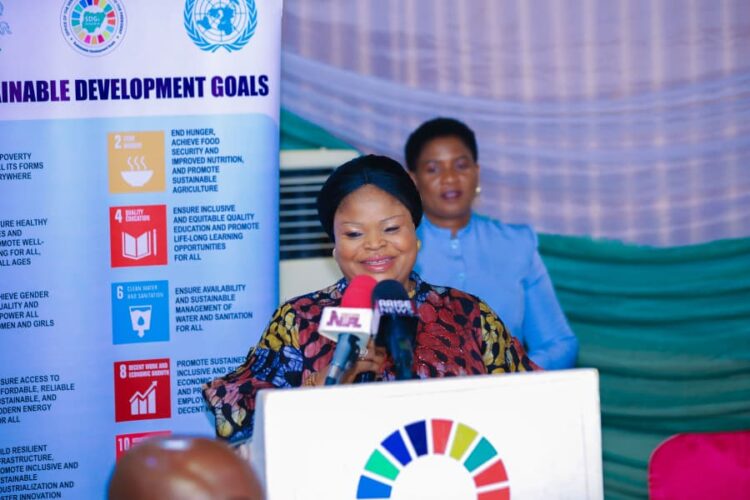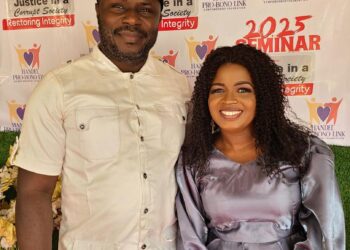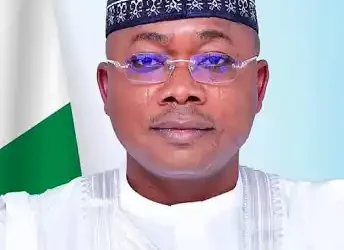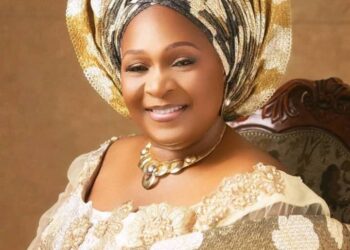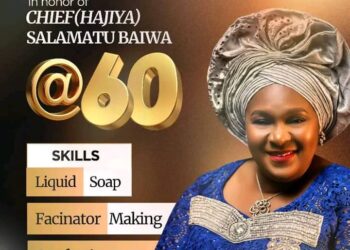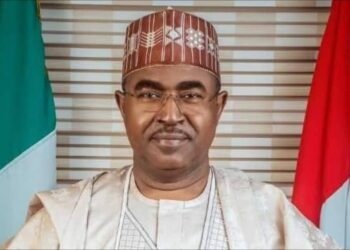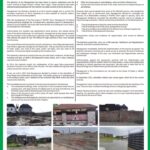After the declaration of the United Nations General Assembly UNGA decision and the migration from Millennium Development Goals MDGs to Sustainable Development Goals SDGs after 2015, Princess Adejoke Orelope-Adefulire, SSAP-SDGs to the President Bola Ahmed Tinubu became the pioneer headship of SDGs.
Since the declaration in 2016 , series of decisions been taken at the yearly UNGA meetings is domesticated in Nigeria in all areas of our national life, which encompassed the 17 Goals of SDGs.
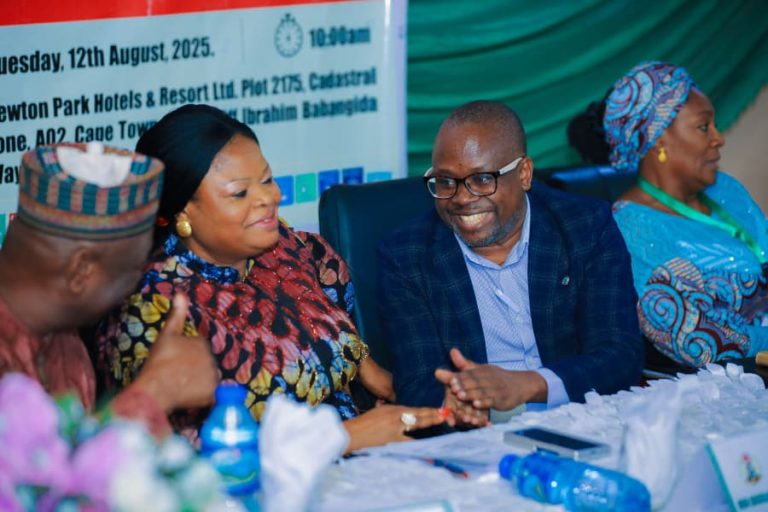
With impactful leadership under Princess Adejoke Orelope-Adefulire, the SSAP-SDGs to the President that ran through late President Muhammadu Buhari to the current President Bola Ahmed Tinubu under the Renewed Hope Agenda.
With proper coordination and adequate management of both resources and human management at national and sub nationals in the last nine years , highlighting health , education, infrastructure, with adequate provision of water , empowerment, training and retraining on basic necessities of life, in line with the UN declaration and 17 Goals agenda.
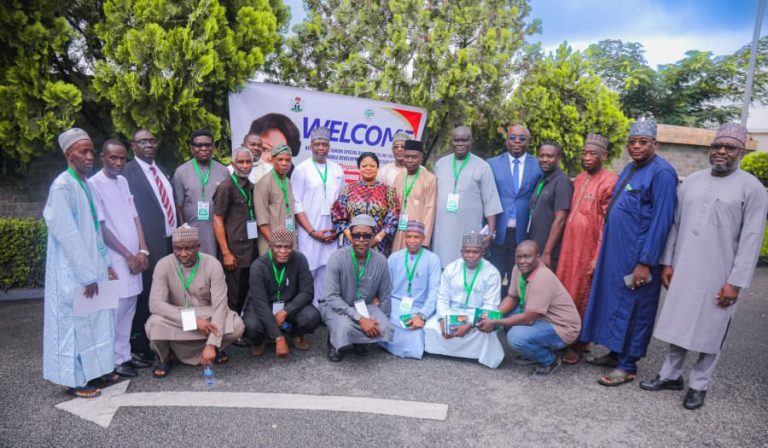
The positive development and management of the program ran for four consecutive years , through massive domestication of the programs that led to 2020-2030 decade of action and agenda initiated at UNGA meeting in 2020.
Since then , efforts was geared towards meeting both social , economic and political development of countries for the decade of action introduced globally towards meeting all forms and eradicating all areas of underdevelopment in the developing countries with Nigeria not in exception.
Five years down the line , and five years towards the target 2020-2030 and a “turning point” of the effects and efforts at achieving the global decade, efforts are been redoubled by the handlers in the country towards achieving the desired results .
This had led to the recent convergence of stakeholders at the national, private sector, voluntary agencies, civil rights groups and particularly the sub nationals whose impact is desiring and in high expectations.
The decision to convene the meeting was the lackadaisical response of some sub-nationals numbering about 17 states in Nigeria, whose reactions will be inimical towards achieving the decade of action and global agenda for 2020-2030.
The timely meeting held and convened by the SSAP-SDGs, recently was to raise more awareness, orientation and the need to reorient the sub-nationals particularly to ensure seamless execution of programs and in line with the decade of action in the 36 states including the Federal Capital Territory FCT.
The Princess Adejoke Orelope-Adefulire led SDGs is not leaving any stone unturned both at the federal and state level, but particularly at the sub-nationals which included the non- participatory 17 sub-nationals, that is capable of eroding and jeopardizing the already achieved programs in the last five years and the next five years.
With determination, desire and action, no doubt the new wave of awareness and orientation piloted by the handlers of SDGs in the country is capable of re-engineering, reinvigorating and redirecting the passion and emotion of sub-nationals towards achieving the desired results of 2020-2030 Agenda.
With conviction and commitment of SDGs in Nigeria, it is obvious that the 17 sub-nationals will have a rethink towards keying into the new order in the next five years and retracing their steps in the last five years towards meeting the stated objectives on socioeconomic, political and infrastructural development of the states .
Therefore, the meeting and statements was germane, timely to redress the needed attention towards the 2020-2030 Agenda.
Princess Adejoke Orelope-Adefulire , SSAP-SDGs further states.
“With just five years remaining until the 2030 deadline for achieving the Sustainable Development Goals (SDGs), the Senior Special Assistant to the President on SDGs, Princess Adejoke Orelope-Adefulire, has issued a clarion call to state governments and stakeholders to shift from pledges to measurable outcomes.”
“Speaking at a high-level Roundtable Dialogue with State SDGs Focal Persons held in Abuja on Tuesday, Orelope-Adefulire emphasized that Nigeria’s success hinges on urgent, coordinated action across all levels of government and society.”
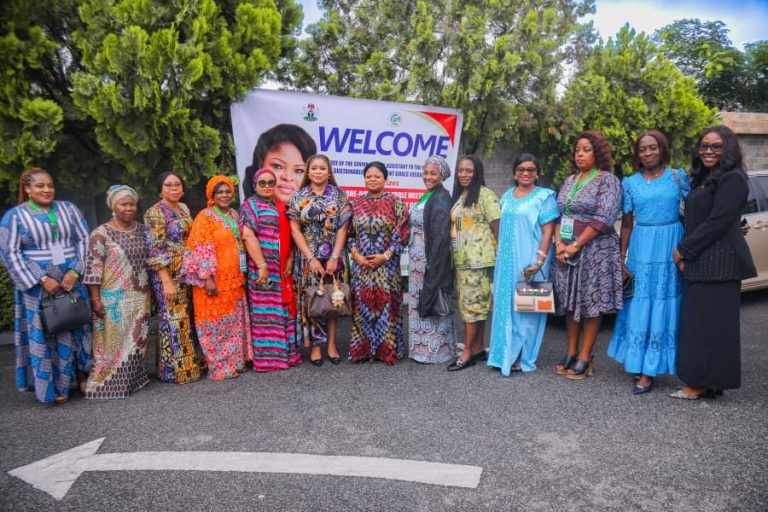
“Our discussions must be honest, bold, and action-oriented. We must move from commitment to results. The SDGs are about real people, real communities, and real change,” she declared.
Urgency and Ownership
“Orelope-Adefulire stressed that the final stretch toward 2030 demands “greater coordination, innovation, and subnational ownership.” She urged state focal persons to play a more strategic role in translating national policy into grassroots impact, calling for the SDGs to be fully embedded in state budgets and development plans.”
“She revealed that while 20 states have aligned their plans with SDG targets and indicators, 17 states have yet to domesticate the goals—a gap she described as a “major obstacle” to national progress.”
“This is a national agenda, not a state or federal government agenda. It requires all tiers of government working in unison,” she said.
Financing and Accountability
“The Presidential adviser warned that sustainable development cannot be achieved without sustainable financing. She urged states to reduce reliance on external aid and focus on mobilizing domestic resources.”
“When you spend 10 Naira, we want to know what portion goes to No Poverty, Zero Hunger, education, healthcare, or job creation at the grassroots,” she said.
“She called for bottom-up development, emphasizing that increased federal allocations must translate into tangible community benefits.”
Voices from the States
“The dialogue featured contributions from state representatives who shared their experiences and challenges in implementing the SDGs.”
“Julius Okunbor, Director-General for SDGs in Edo State, described the event as “an eye-opener,” noting that the SDGs in his state had been revitalized and were actively driving progress.”
“Many believe there’s a lot of donor money in the SDG coffers, but the truth is, we must work with what we have, minimise leakages, and manage budgets prudently,” Okunbor said.
“Kenechukwu Nwosu, Special Adviser to the Abia State Governor on Basic and Secondary Education, highlighted the importance of integrating SDGs across sectors such as infrastructure, health, agriculture, and sanitation.”
“We have strong ‘handshakes’ with municipal governments and local chieftains. Social mobilisation and grassroots engagement are critical to our success,” Nwosu noted.
A Turning Point for Nigeria
“In her closing remarks, Orelope-Adefulire urged participants to make the dialogue a turning point in Nigeria’s collective efforts to achieve the SDGs.”
“The SDGs are not abstract. They are about real people, real communities, and real change. Every state must play its part, and for those 17 states yet to domesticate, the time to act is now.”
“As the clock ticks toward 2030, the message from Abuja was clear: Nigeria’s sustainable development future will be shaped not only by federal policy but by the actions taken in state capitals, local government offices, and communities across the country.”

